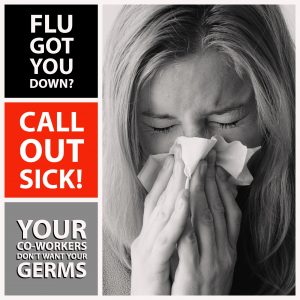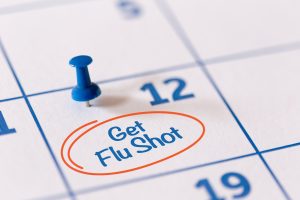
Dover Dr. Vibha Sanwal[/caption] – Vibha Sanwal, MD, from Rainbow Pediatrics of Georgetown & Lewes, has been named a Centers for Disease Control and Prevention (CDC) Childhood Immunization Champion for her outstanding efforts to promote childhood immunizations in her clinic offices. The Division of Public Health’s (DPH) Immunization Program nominated the pediatrician for the award.
Dr. Sanwal is recognized for embracing the Assessment, Feedback, Incentive & eXchange (AFIX) assessment process by reviewing patient charts against the Immunization Information System (IIS) and updating individual immunization records as patients came in during their scheduled office visits. Her clinic staff also reviewed their patient roster to ensure that the roster in the IIS matched the patient roster in their Electronic Medical Record (EMR) system. This process enables the IIS to reflect her clinic’s true coverage rates for all the vaccine-preventable diseases and provides a roadmap to ensure all her patients get each of the vaccines needed to stay healthy.
“Through the Childhood Immunization Champion awards, CDC and Delaware proudly acknowledge Dr. Sanwal’s passion, hard work and commitment to children’s health by working to eliminate vaccine preventable diseases in our state,” said DPH Director Dr. Karyl Rattay.
“I am honored to be recognized as the Immunization Champion for Delaware,” Dr. Sanwal said. “Vaccinations prevent disease and reduce suffering, improve our quality of life, and help our children live long, fulfilling lives. We will continue to work hard to improve the immunization rate of our population at Rainbow Pediatrics.”
National Infant Immunization Week (NIIW), April 21 to 28, 2018, is an annual observance to highlight the importance of protecting infants from vaccine-preventable diseases and to celebrate the achievements of immunization programs in promoting healthy communities throughout the United States. Each year during NIIW, the CDC Foundation honors health professionals and community leaders from around the country with the CDC Childhood Immunization Champion awards. These awards acknowledge the outstanding efforts of those individuals who strive to ensure that children in their communities are fully immunized against 14 preventable diseases before the age of two.
“The tremendous success of CDC’s immunization programs to protect the nation’s children from vaccine-preventable diseases is a direct result of the efforts of childhood immunization champions,” said Dr. Nancy Messonnier, Director of the National Center for Immunization and Respiratory Diseases at the CDC. “We cannot overstate the value of the dedication our Champions have shown, which ultimately protects our children, schools, and communities from serious diseases.”
CDC Childhood Immunization Champions were selected from a pool of health professionals, coalition members, community advocates and other immunization leaders. State Immunization Programs coordinated the nomination process and submitted nominees to CDC. One winner was selected in each of the 50 participating states and the District of Columbia.
For profiles of other CDC Childhood Immunization Champion award winners, visit https://www.cdc.gov/vaccines/champions.
For information on immunization schedules for infants and children, visit: http://www.dhss.delaware.gov/dph/dpc/immunize-children.html.
A person who is deaf, hard-of-hearing, deaf-blind or speech-disabled can call the DPH phone number above by using TTY services. Dial 7-1-1 or 800-232-5460 to type your conversation to a relay operator, who reads your conversation to a hearing person at DPH. The relay operator types the hearing person’s spoken words back to the TTY user. To learn more about TTY availability in Delaware, visit http://delawarerelay.com.
Delaware Health and Social Services is committed to improving the quality of the lives of Delaware’s citizens by promoting health and well-being, fostering self-sufficiency, and protecting vulnerable populations. DPH, a division of DHSS, urges Delawareans to make healthier choices with the 5-2-1 Almost None campaign: eat 5 or more fruits and vegetables each day, have no more than 2 hours of recreational screen time each day (includes TV, computer, gaming), get 1 or more hours of physical activity each day, and drink almost no sugary beverages.
 DOVER — The Division of Public Health (DPH) is reporting two more flu-related deaths that occurred during the last two weeks of February, bringing the 2017-2018 season death total to 30. This number breaks the previous single-season record of 28 flu-related deaths, set in 2014-2015. The deceased were both females, 83 and 84 years old, from New Castle and Kent counties, respectively. Both had multiple underlying health conditions.
DOVER — The Division of Public Health (DPH) is reporting two more flu-related deaths that occurred during the last two weeks of February, bringing the 2017-2018 season death total to 30. This number breaks the previous single-season record of 28 flu-related deaths, set in 2014-2015. The deceased were both females, 83 and 84 years old, from New Castle and Kent counties, respectively. Both had multiple underlying health conditions.  DOVER — A third person has died as a result of complications due to the flu since the start of the 2017-2018 flu season in October. The Division of Public Health (DPH) announced that a 76-year-old Sussex County man passed away over the weekend in a New Castle County hospital. The man who had several underlying health conditions, is the first flu-related death from Sussex County this season. Previously, an 83-year-old female and a 47-year-old male, both from New Castle County, died from flu-related complications. Both also had underlying medical conditions.
DOVER — A third person has died as a result of complications due to the flu since the start of the 2017-2018 flu season in October. The Division of Public Health (DPH) announced that a 76-year-old Sussex County man passed away over the weekend in a New Castle County hospital. The man who had several underlying health conditions, is the first flu-related death from Sussex County this season. Previously, an 83-year-old female and a 47-year-old male, both from New Castle County, died from flu-related complications. Both also had underlying medical conditions.